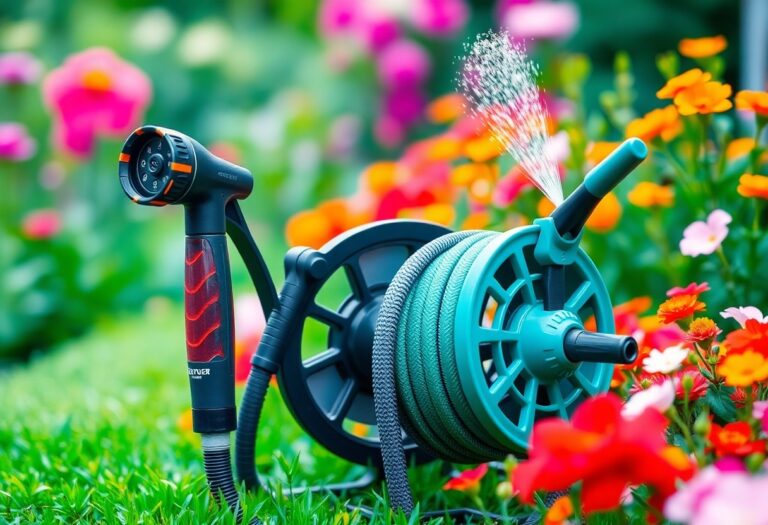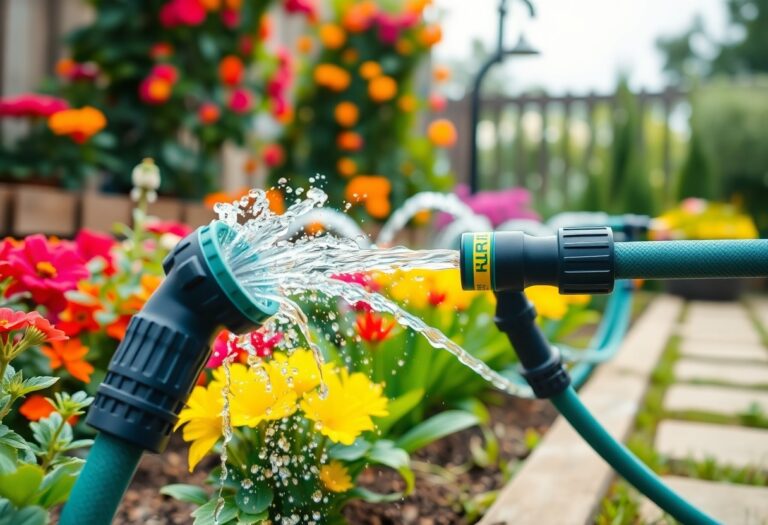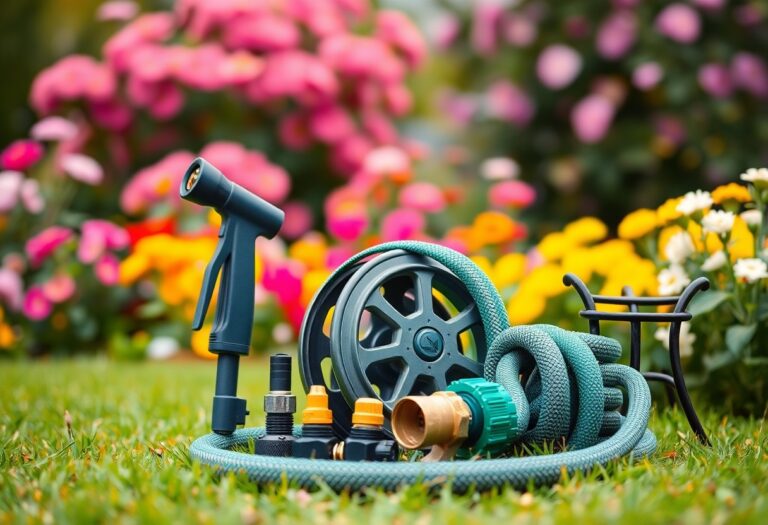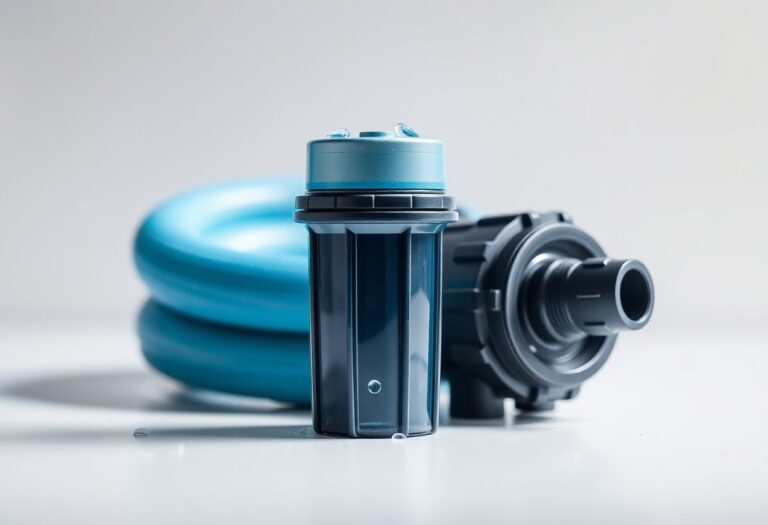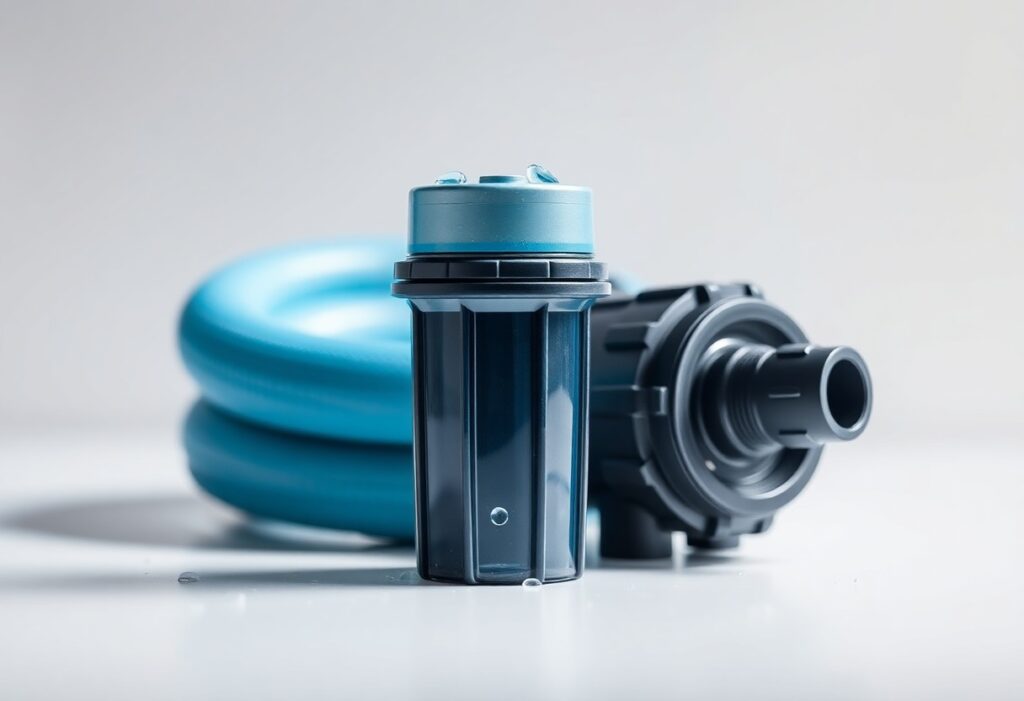
Most homeowners underestimate the importance of water quality in their gardening and outdoor projects. By using garden hose filters and water softeners, you can ensure that your plants receive clean, healthier water, free from contaminants and minerals that could affect their growth. If you’re considering enhancing your water quality, you might be thinking: ” I need to get a hose filter for filling my pool. There are so … “. Here’s what you need to know about these crucial tools for improving your garden experience.
Understanding Garden Hose Filters
For those looking to enhance their gardening experience, garden hose filters are vital devices that ensure your plants receive clean and purified water. These filters remove contaminants such as sediment, chlorine, and other harmful substances, contributing to healthier plants and a more productive garden.
Types of Inline Filters
For better garden management, the following are common types of inline filters you might consider:
- Mesh Filters
- Carbon Filters
- Sand and Gravel Filters
- Reverse Osmosis Filters
- Whole House Filters
Thou will find the right filter suitable for your water needs.
| Filter Type | Effectiveness |
| Mesh Filters | Effective against larger debris |
| Carbon Filters | Removes odors and chlorine |
| Sand and Gravel Filters | Excellent for sediment removal |
| Reverse Osmosis Filters | Highly effective for various contaminants |
Installation and Maintenance
Before installing your garden hose filter, ensure you carefully read the manufacturer’s instructions for optimal setup. Proper installation typically involves attaching the filter directly to your hose, ensuring a tight seal to prevent leaks. Routine maintenance, such as cleaning and replacing filter cartridges, is also necessary for ongoing performance and effectiveness.
Consequently, taking the time to maintain your garden hose filter will prolong its lifespan and efficiency. Regularly inspect for clogs, clean any sediment buildup, and replace filters according to the specified timeline. This proactive approach will help sustain the quality of water that reaches your plants, ultimately contributing to vibrant and thriving vegetation.
Water Softening Systems for Garden Hoses
Some garden hose users find that hard water can cause issues such as mineral buildup and reduced flow rates. By installing a water softening system, you not only improve the quality of your water but also extend the life of your gardening tools and equipment. These systems are designed to filter out minerals like calcium and magnesium, leaving you with softer water that benefits your plants and enhances your gardening experience.
How Water Softeners Work
Around the world, water softening systems typically use a process called ion exchange. In this method, hard water passes through a resin bed where calcium and magnesium ions are swapped for sodium ions, which do not contribute to hardness. This process effectively removes the minerals responsible for hard water, resulting in a softer water supply for your garden and home use.
Choosing the Right System
About selecting the perfect water softener for your garden hose, it’s important to consider factors such as the size of your garden, water hardness levels, and your specific usage needs. You may opt for portable models or in-line systems, depending on your preferences. Assessing these variables will help you to make an informed decision and ensure optimal water quality for your gardening tasks.
System types vary in capacity, technology, and maintenance requirements. Take the time to evaluate the benefits of each option, including ease of installation and water flow rates. Reading reviews from other users may provide insight into the most efficient systems, making it easier for you to choose the right solution that fits your gardening needs and enhances your water quality.
Benefits of Filtered and Softened Water for Plants
There’s a significant benefit to using filtered and softened water for your plants. This improves water quality by removing harmful minerals and contaminants, leading to healthier plant growth. When you provide your plants with cleaner water, they can absorb vital nutrients more effectively, resulting in vibrant foliage and strong roots. Additionally, you’ll notice a reduction in issues related to hard water, ensuring that your garden flourishes year-round.
Enhancing Plant Health
Enhancing the health of your plants becomes effortless with filtered and softened water. By reducing chlorine and other harmful substances, you provide your plants with a more natural drinking source. This leads to vibrant colors and increased resilience against pests and diseases, ultimately creating a thriving garden environment.
Preventing Soil and Mineral Build-Up
Around your garden, the accumulation of minerals and salts from hard water can disrupt soil health. Using filtered and softened water helps to avoid this build-up, ensuring your soil remains nutrient-rich and well-balanced. You’re not only protecting your plants from potential harm but also promoting an optimal growth environment.
Soil that has been compromised by mineral build-up can lead to poor drainage and reduced aeration, both of which can hinder plant growth. By utilizing filtered and softened water, you significantly reduce the risk of these issues. This means healthier roots that can access nutrients more effectively and improved overall soil structure. As a result, your garden remains vibrant and flourishing, free from the negative effects of hard water.
Cost Considerations for Filters and Softeners
Despite the initial costs associated with garden hose filters and water softeners, their ability to improve water quality and extend the life of your plumbing systems often justifies the investment. When evaluating your options, it’s important to weigh the upfront prices against the benefits they provide for your home and garden.
Initial Investment vs. Long-Term Savings
Softeners and filters might seem expensive at first, but they can lead to significant savings over time. By reducing the need for repairs, extending the lifespan of appliances, and minimizing the costs associated with replacing hard water damaged fixtures, you can offset the initial outlay and enhance your home’s overall efficiency.
Budget-Friendly Options
The market offers various budget-friendly options when it comes to garden hose filters and water softeners. You can find models that provide effective filtration without breaking the bank, allowing you to enjoy cleaner water without a hefty price tag.
This variety includes portable filters, which are generally cheaper and excellent for temporary needs, and entry-level softeners that can fit your budget while addressing specific water quality issues. Additionally, some DIY methods, like using sediment filters or vinegar treatments for softening, can further save you money. By carefully assessing your water quality needs and researching options, you can find solutions that align with your budget while enhancing your water quality.
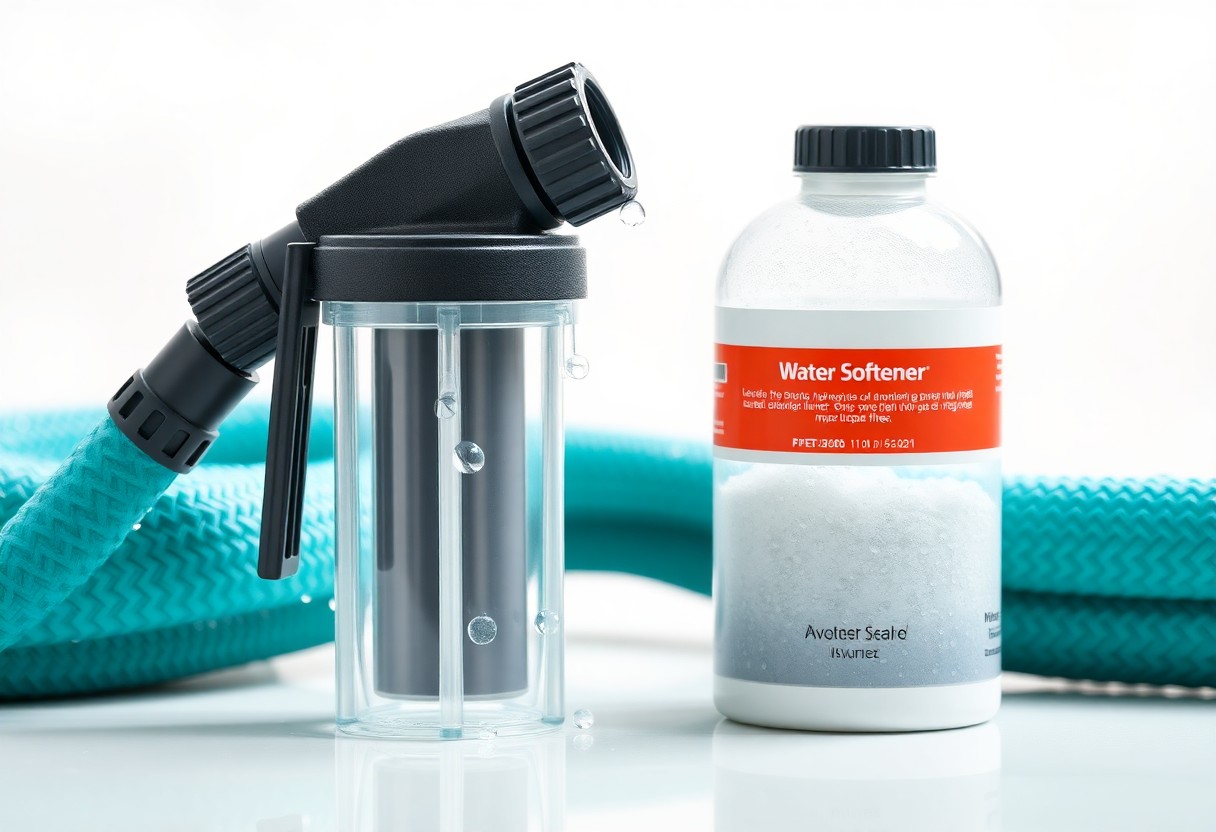
Environmental Impact of Water Quality Improvement
Your efforts to improve water quality have a positive ripple effect on the environment. Enhancing the purity of your water source not only benefits your garden but also contributes to healthier ecosystems. Clean water reduces pollution levels in local waterways and supports biodiversity. By utilizing garden hose filters and water softeners, you help safeguard overall environmental health, promoting sustainable living practices for yourself and future generations.
Reduced Chemical Use
On your journey towards a healthier garden, you may find that reducing chemical use is imperative. By installing water filters, you can decrease the reliance on chemical treatments that may harm your plants and the surrounding environment. Utilizing purer water allows for more natural gardening methods, minimizing chemical runoff and contributing to a cleaner ecosystem.
Sustainable Gardening Practices
Between enhancing your water quality and adopting sustainable gardening practices, you pave the way for a greener lifestyle. Transitioning to methods that prioritize natural resources supports not only your garden’s health but also that of the planet. This includes composting, planting native species, and practicing water conservation, which collectively contribute to reducing your environmental footprint.
Chemical fertilizers and pesticides can significantly harm both your garden and the environment. By embracing sustainable gardening practices, you create a more balanced ecosystem. Utilizing organic methods, such as composting with kitchen scraps and encouraging beneficial insects, enhances soil health and boosts resilience against pests. Additionally, when you focus on native plants that thrive in your local climate, you reduce the need for excessive watering and chemical supplements. Overall, adopting these practices leads to more sustainable gardening, helping both your garden and the planet flourish.
Best Practices for Optimal Watering
Now that you’ve invested in garden hose filters and water softeners, it’s vital to adopt best practices for optimal watering. By following these guidelines, you’ll enhance the overall health of your garden and ensure that your plants thrive with high-quality water. Consider the timing, frequency, and water quality to achieve the best results.
Timing and Frequency
Optimal watering timing and frequency can significantly impact plant health. Aim to water during the early morning or late afternoon when temperatures are cooler, helping to reduce evaporation. Adjust the frequency based on weather conditions, soil type, and plant requirements to maintain consistent moisture without overwatering.
Monitoring Water Quality
The quality of your water plays a significant role in the health of your garden. Regularly testing for contaminants and hardness levels ensures that you’re providing your plants with the cleanest, most beneficial water.
Even small changes in water quality can affect your plants’ growth and vitality. By using water testing kits, you can identify any issues with pH, hardness, or contaminants that may need addressing. Regularly monitoring these factors allows you to adjust your watering practices accordingly, ensuring that your plants receive the best possible care and thrive in a healthy environment.
Summing up
Hence, by incorporating garden hose filters and water softeners into your outdoor water system, you significantly enhance the quality of the water you use for gardening, cleaning, and other outdoor tasks. These solutions effectively reduce contaminants and minerals, leading to healthier plants and improved equipment longevity. Understanding and addressing your water’s specific needs empowers you to maintain a thriving garden and achieve better results in your outdoor activities.
FAQ
Q: What is the purpose of using a garden hose filter?
A: A garden hose filter is designed to remove impurities and contaminants from the water before it reaches your plants or gardening tools. This can include sediment, chlorine, heavy metals, and bacteria, ensuring that the water used for irrigation is clean and safe for your plants.
Q: How do water softeners improve garden water quality?
A: Water softeners work by removing hard minerals, such as calcium and magnesium, which can lead to scale buildup in pipes and on plants. By softening the water, it helps to prevent these issues and improves the absorption of nutrients by plants, ultimately promoting healthier growth and reducing the risk of clogging in hoses and drip systems.
Q: Can I use my garden hose filter with municipal water supplies?
A: Yes, garden hose filters can be effectively used with municipal water supplies. While municipal water is typically treated, it can still contain chlorine or other additives that might not be ideal for all plants. A garden hose filter can help reduce these chemicals and enhance the quality of water used in your garden.
Q: How often should I replace the filter in my garden hose filter system?
A: The frequency of filter replacement can vary based on water quality and usage. A good rule of thumb is to check the filter every few months or whenever you notice a drop in water pressure. Regular maintenance will ensure that your filter continues to operate effectively and provides clean water to your garden.
Q: Are there specific types of water softeners recommended for gardening?
A: For gardening purposes, it’s advisable to choose a water softener that uses salt-free technology or potassium-based systems, as these alternatives are generally less harmful to plants compared to traditional sodium-based softeners. Additionally, look for softeners that allow for easy adjustments so you can control the level of softness according to your garden’s specific needs.

